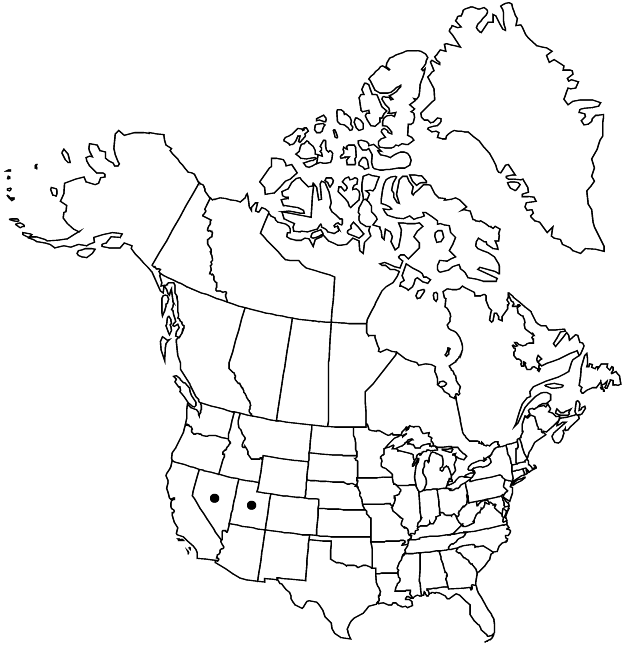Silene nachlingerae
Brittonia 37: 344, fig. 1. 1985.
Plants perennial; taproot stout; caudex usually branched, woody, producing tufts of basal leaves and 1–several flowering shoots. Stems subscapose, with (1–) 2–3 (–4) pairs of leaves, 6–25 cm, much reduced above base, retrorsely puberulent, eglandular. Leaves 2 per node; basal blades oblanceolate, spatulate, 1.4–4 cm × 2–5 mm, base ciliate, apex acute, subglabrous to retrorse-puberulent; cauline shortly connate proximally, blade narrowly oblanceolate to linear-lanceolate, 0.5–3.5 cm × 1–2 mm, apex purple-tinged, retrorse-puberulent, often sparsely so. Inflorescences 1–3 (–4) -flowered, open. Pedicels erect, 1–4 times longer than fruiting calyx, retrorsely puberulent, without glandular-hairs. Flowers: calyx prominently 10-veined, cylindric, becoming narrowly ovoid, not inflated, not contracted proximally around carpophore, 6–11.5 × 3 mm in flower, broadening to ca. 5 mm in fruit, membranous, uniformly puberulent, without glandular-hairs, veins parallel, green, with pale commissures, lobes triangular, 1–1.5 mm, margins narrowly membranous, apex purple-tipped; corolla white, usually flushed with pink or purple towards apex, ligulate to ± oblanceolate, slightly longer than calyx, not clearly differentiated into claw and limb, unlobed to notched, auricles and appendages absent; stamens equaling calyx; styles 3, included in calyx. Capsules ellipsoid-ovoid, slightly longer than calyx, opening by 6 ascending teeth; carpophore ca. 1 mm. Seeds rust colored, reniform, 0.7–1 mm, margins papillate; papillae large, inflated.
Phenology: Flowering summer.
Habitat: Alpine limestone ridges and slopes
Elevation: 2500-3000 m
Discussion
Of conservation concern.
Silene nachlingerae is a small version of S. invisa, although the latter species has glabrous leaves. Both have the characteristic inflated (balloonlike) papillae around the outer edge of the seed.
Selected References
None.
